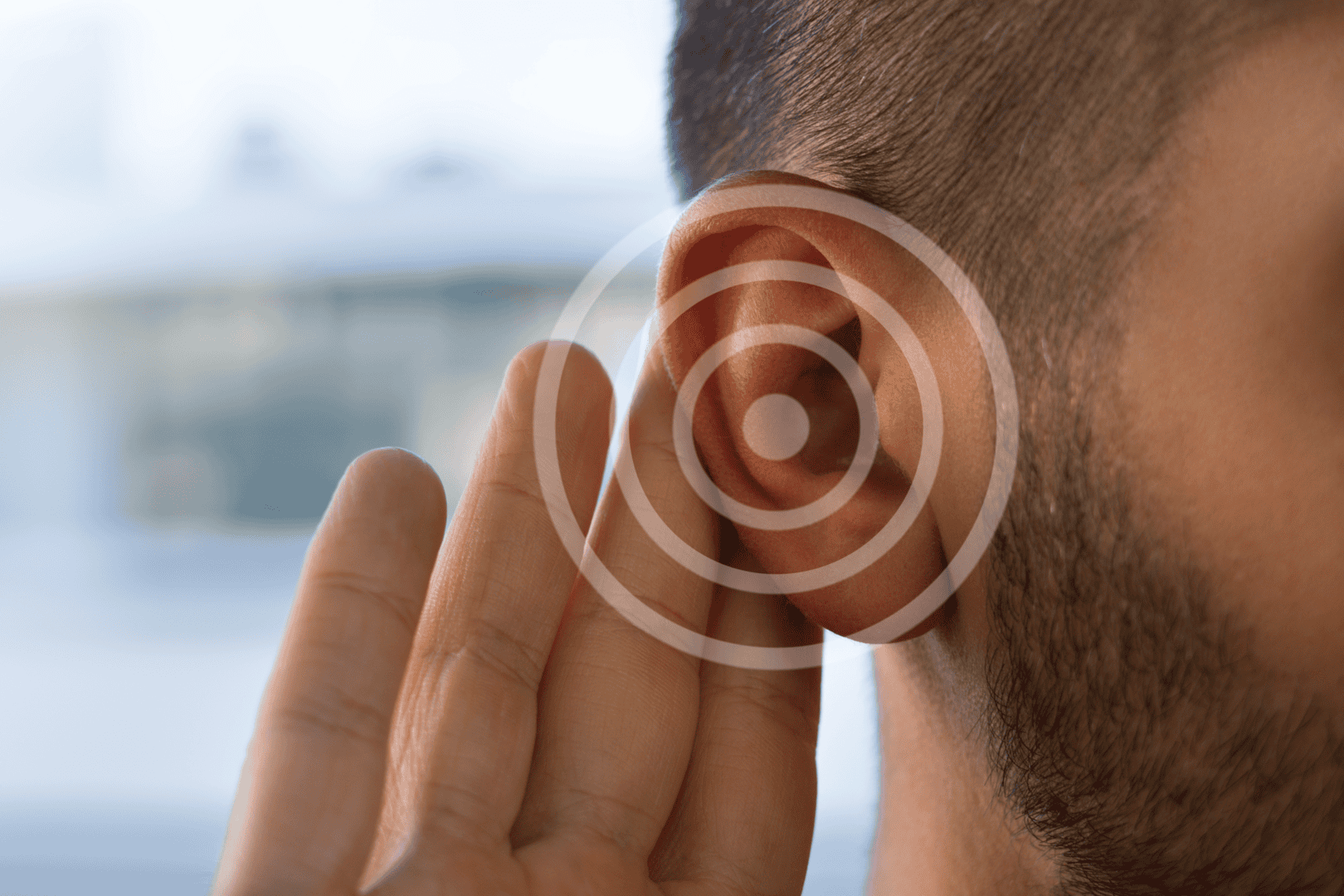In a recent report, Tinnitus UK have highlighted an ‘alarming mental health crisis amid a void of support’ for tinnitus sufferers. There is limited mental health support from GPs, waiting times for secondary care have tripled in recent years and tinnitus-related healthcare costs in the UK amount to £750 million annually. Awareness is slowly increasing, but what can be done to both increase prevention and decrease distress for those suffering? This blog touches on both of these topics and spotlights an innovative start-up in this space, ‘TinniSoothe’.
What is tinnitus?
Prolonged tinnitus is a hearing condition affecting around 13% of adults in the UK, that’s roughly 7.1 million people! Tinnitus is a condition that involves a person hearing noises that do not come from an outside source. For some with tinnitus, they experience noises intermittently, however, others suffer from hearing sounds on a continuous or near-constant basis. The sounds that individuals with tinnitus experience vary and can come in different forms such as: ringing, buzzing, whooshing, humming, hissing, throbbing, music or singing. Some common sound comparisons recorded in a study by Tinnitus UK included the noise of a jet engine, a whistling kettle, a dentist’s drill, buzzing bees and fire alarms.
Tinnitus can be a frustrating condition to live with, many suffering from the hearing disorder express how they feel their tinnitus is trivialised and not taken seriously. Tinnitus UK’s published findings showing that one in five respondents said that they think about their tinnitus “every few minutes” or “every waking moment” and 84% said that they think about it “every day,” highlighting the struggle and discomfort that can come with the condition. Frequently those with tinnitus can experience low moods, depression, and anxiety, and some even experiencing suicidal thoughts. 81% of participants in the Tinnitus UK study felt that a cure for tinnitus would have a big impact on them, with one in four (28%) saying it would “completely change” their life and 98% saying it would make their life better.
What causes tinnitus?
The cause of Tinnitus is not always clear, however, according to the NHS Tinnitus is often linked to the following:
· Some form of hearing loss
· Ménière’s disease
· Conditions such as diabetes, thyroid disorders or multiple sclerosis
· Anxiety or depression
· Taking certain medicines – tinnitus can be a side effect of some chemotherapy medicines, antibiotics, non-steroidal anti-inflammatory drugs (NSAIDs) and aspirin
How can I protect my hearing?
Tinnitus is more common in people with some form of hearing loss. There are many different reasons for hearing loss, some are uncontrollable such as genetic conditions, however, factors like hearing loss from noise exposure are preventable!
Sound is measured in decibels (dBA), extended or repeated exposure to sounds at or above 85 dBA can lead to hearing loss.
Some examples of decibel ratings by the National Institute on Deafness and Other Communication Disorders:
· Normal conversation: 60-70 dBA
· Movie theatre: 74-104 dBA
· Motorcycles and dirt bikes – 80-110 dBA
· Music through headphones at maximum volume, sporting events, and concerts: 94-110 dBA
· Sirens – 110-129 dBA
· Fireworks show – 140-160 dBA
Here are some ways to protect your hearing:
· Keep to the recommended noise settings on devices when wearing headphones
· Invest in noise protection! Many people don’t use protective options due to worrying about missing out on sound. However, a range of hearing protection options simply lower the volume of your surroundings to a safer level, so you’re still able to fully experience the sounds of your setting and protect your hearing!
· When in loud environments remember to wear noise protection, this can be anywhere from when using loud machinery in the workplace, to a concert, or even when on a loud vehicle like a motorbike!
· There are many different choices for noise protection from the standard foam earplugs to noise cancellation earmuffs, and even discreet and stylish options such as loop earplugs.
· Make your hearing protection easily accessible, if you’re using ear plugs many come with carry cases that are small and easy to keep on your keychain or in your bag for when you need them.
Support for tinnitus
Unfortunately, there is no cure for tinnitus. There is currently not a wide range of support for those suffering from Tinnitus: common treatments that are used to help patients manage tinnitus are cognitive behavioural therapy (CBT), tinnitus counselling, and tinnitus retraining therapy. However, there is limited mental health support from GPs, with only 5% offered Cognitive Behavioural Therapy (CBT) as recommended in the NICE guidelines.
Where hearing loss is a primary cause, correcting the loss with hearing aids can help to decrease awareness of tinnitus by increasing external sounds. However, according to research from Tinnitus UK, 83% of patients are ‘unhappy with the treatment they receive from their health professional.’
One of the challenges for people suffering from tinnitus is quieter or silent environments as, when there is a lack of background noise, awareness of tinnitus tends to increase. Many sufferers find relief through using ambient sounds such as white noise, which helps to distract the mind from the tinnitus sound, but until now, there has been a lack of affordable and practical solutions to this for everyday use. However, a small start-up company Tinnisoothe believe they have come up with the solution for this!
Tinnisoothe
After 5 years of prototypes, Tinnisoothe has released the world’s first wearable tinnitus device to provide 24/7 relief using white noise. After trying the various treatments for Tinnitus (acupuncture, hypnotherapy, mindfulness, vitamins, medication, and even injections into the eardrums in a medical trial) Howard Presland came up with his own original and new idea for Tinnitus relief.
Tinnisoothe is a new vehicle for white-noise relief. It is a small and discreet wearable device that can be effortlessly worn either by clothing clip or by lanyard meaning you don’t have to wear anything around your ears. With a battery that lasts for up to 72 hours and a bedside docking station (which recharges the device whilst providing relief through the night), it provides 24 hours of relief and ensures you are never alone in silence with your tinnitus.
Tinnisoothe is a class 1 medical device certified by the UK Medicines & Health Product Regulatory Agency.
To learn more about this interesting new product visit: https://tinnisoothe.com/
*Disclaimer we have not been paid or sponsored to endorse any products or services mentioned in this blog.
Sources:
https://tinnitus.org.uk/wp-content/uploads/2023/01/Tinnitus_Manifesto.pdf
https://tinnitus.org.uk/
https://www.nhs.uk/conditions/tinnitus/
https://www.nidcd.nih.gov/health/noise-induced-hearing-loss
https://tinnisoothe.com/













